Peak Tariff Tantrum Boosts Mag-7 and Market Higher
 Lisa Kailai Han and Sean Conlon of CNBC report S&P 500 closes higher for a fourth day in a row, notches 4% gain for the week:
Lisa Kailai Han and Sean Conlon of CNBC report S&P 500 closes higher for a fourth day in a row, notches 4% gain for the week:The S&P 500 rose on Friday, adding to its strong gains for the week, as investors continue to navigate an evolving global trade landscape while major tech names got a boost.
The broad market benchmark ended 0.74% higher at 5,525.21, while the Nasdaq Composite added 1.26% to end at 17,282.94. The Dow Jones Industrial Average lagged, but managed to close 0.05%, or 20 points higher, at 40,113.50.
Alphabet rose 1.5% after the Google parent and “Magnificent Seven” name reported a beat on the top and the bottom lines for the first quarter. Tesla, meanwhile, popped 9.8%, while fellow megacap names Nvidia and Meta Platforms advanced 4.3% and 2.7%, respectively.
The major averages rose on the week, notching their second positive week out of three. The S&P 500 gained 4.6%, while the Nasdaq climbed 6.7%. The Dow has underperformed but still cinched a one-week advance of 2.5%. With these latest gains, Nasdaq is now slightly positive for the month, but the S&P 500 is down 1.5% month to date. The Dow has fallen 4.5% so far in April.
Stocks have been taken for a wild ride in recent weeks, as traders try to make sense of the severity of President Donald Trump’s tariffs first unveiled on April 2. Mixed messaging around trade has added to the volatility.
China said Thursday that there were no talks with the U.S. on a potential trade deal. This came after the U.S. appeared to soften its stance on trade relations with China.
On Friday, Time magazine published comments from Trump that said he would consider it a “total victory” if the U.S. has high tariffs of 20% to 50% on foreign countries a year from now. But his Tuesday comments published Friday also said the president expects announcements on many deals to be coming “over the next three to four weeks.”
Adding to the confusion, Trump told reporters from Air Force One that he would not drop tariffs on China unless “they give us something.”
Still, going forward, Jay Hatfield, founder and chief investment officer of InfraCap, is optimistic that the worst of the tariff-induced uncertainty is over.
“The confusion about whether there’s really talks going on with China or not took some steam out of the market,” he told CNBC in an interview. “Our view is that we’ve reached peak tariff tantrum and so it’s likely to be more positive than negative.”
Hatfield believes the key driver for markets next week will be earnings from big hyperscaler firms such as Microsoft and Amazon.
Amalya Dubrovsky , Brett LoGiurato and Ines Ferré of Yahoo Finance also report Tesla surges 9%, S&P 500 gains for 4th-straight day in longest win streak since January:
US stocks rose on Friday, led by Big Tech, as President Trump's latest comments on tariffs kept trade tensions in focus.
The Dow Jones Industrial Average rose slightly. But the S&P 500 gained 0.7%, closing out its longest winning run since January. The Nasdaq Composite gained nearly 1.3%.
Tech stocks led a four-day rally on the S&P 500 and Nasdaq. AI chip maker Nvidia (NVDA) rose nearly 4%. EV maker Tesla (TSLA) jumped nearly 10% amid optimism that entry into the Indian market is near, and as the US said it would ease rules around self-driving technology.
The S&P 500 gained more than 4% for the week as investors focused on Trump's generally optimistic tone on trade talks and Fed officials hinted at possible rate cuts as early as this summer.
On Friday afternoon, Trump told reporters he won't drop tariffs on China unless "they give us something" in return. He also said another tariff pause is unlikely.
Meanwhile, reports circulated that China may pause its 125% tariff on some US goods, boosting market sentiment. Trump has claimed progress in negotiations with China, but China denied the existence of negotiations and demanded that the US lift its tariffs.
In individual movers, Alphabet (GOOG, GOOGL) stock rose after the company beat on earnings and announced a dividend hike and a $70 billion stock buyback. Intel's (INTC) stock fell despite beating earnings estimates. T-Mobile (TMUS) and Skechers (SKX) tumbled too, with both companies flagging the early effects of the tariffs.
Next week investors will hear from software giant Microsoft (MSFT) and social media platform Meta (META) as they report earnings on Wednesday. Tech giant Apple (AAPL) and e-commerce platform Amazon (AMZN) will also report earnings on Thursday.
It was a strong week in markets led by mega cap tech shares and other hyper growth stocks:

Are we past peak tariff tantrum? Most likely but with Trump, you never know.
One thing is for sure, the US economy is a lot more resilient than most analysts think and all this nonsense on the "end of American exceptionalism" and the "death of the US dollar" was way overblown.
In my opinion, the US dollar which has been hammered this year, especially after tariffs were announces, is due for a big bounce up:

As far as the Nasdaq, it bounced big this week but remains below its 10 and 50-week exponential moving average:

It was really semiconductor shares (SMH) which propelled tech stocks higher this week but there too, hard to read more than a bounce for now:

There are a lot of bounces from deeply oversold levels but it doesn't mean new uptrend has resumed.
Having said this, if economic data and earnings prove to be better than expected in Q2, this might be a decent quarter in the market.
I'm more concerned about Q3 and Q4 when delayed effects of tariffs kick in.
Interestingly, Reuters reports a JPMorgan survey shows consensus over weak dollar, US stagflation:
There is a much higher risk of stagflation than recession in the U.S. economy over the next year, while the asset class most expected to outperform in 2025 is cash, according to the results of a JPMorgan survey published on Friday.
The trade war started by the U.S. administration of Donald Trump is seen by the majority as the policy with the most negative impact on the world's largest economy.
Three in five respondents believe U.S. economic growth will stall and inflation will remain above the 2% Federal Reserve target, with one-in-five respondents expecting inflation above 3.5%.
There is also consensus on the weakness of the U.S. dollar, with a majority expecting the euro at or above $1.11 to end the year, at least an 8% decrease for the U.S. currency this year.
"Our meetings were noteworthy for the differences in views between US investors compared to global investors on the consequences and market implications" of the regime change in the United States, JPMorgan said.
Cash is expected to remain expensive as yields on the U.S. 10-year note are not seen declining much from current levels. Over half of respondents believe the benchmark yield will be at or above 4.25% by the end of 2025.
Almost half of the respondents expect Brent oil prices to stabilize not far from the current price of $66 per barrel, while 3 in 10 foresee prices dropping to or below $60.
At 13%, more investors bet that emerging market equities will outperform other asset classes than the 9% who think developed stocks will.
Fifty-seven percent of respondents expecting Wall Street stocks to be the asset class with the largest outflows this year.
ESG investing was out of favor with 30% committed to maintaining their strategies while 42% showed no interest.
JPMorgan's survey was conducted on April 1-24 and 495 investors responded, according to the bank.
Note when this survey was conducted and the only reason I'm sharing it is because it will likely turn out to be spectacularly wrong.
Lastly, my friend and trading mentor Fred Lecoq who now lives in beautiful France sent me a Wall Street Journal article from Jason Zweig on the mistakes you're making in the stock market -- without even knowing it:
If you’re young, you know stocks and bitcoin can lose money at lightning speed. Just think of March 2020 or 2022. But your experience also tells you they will bounce back even faster and go on to new highs.
If you’re a middle-aged bond investor, you lived through almost nothing but falling interest rates and bountiful returns from 1981 through early 2022. In an earlier generation, the stock-market crash of 1929 haunted many investors, who shunned stocks for decades after.
Peter Bernstein, a financial historian and investment strategist who died in 2009, liked to say that investors have memory banks: the market returns collectively earned by people of similar age. Experience shapes expectations.
The problem is that your memory bank can deceive you in dangerous ways. Your experience of the past is a reasonable guide to the future only if the future turns out to resemble the portion of the past that you’ve lived through. And it often doesn’t.
Given the markets’ wild oscillations amid the uncertainty over President Trump’s trade policy, it’s worth looking at a few investing beliefs that your memory bank might hold—and asking whether they’re still valid.
Growth crushes valueFor most of the past decade-and-a-half, value stocks—companies with lower share prices relative to their earnings and assets—have limped along, far behind higher-priced growth stocks like Apple, Nvidia and Tesla.
So far this year, though, Warren Buffett’s Berkshire Hathaway, the standard-bearer for bargain-hunting in the stock market, has gained 17.3%, bolstered by its $330 billion in cash. The technology-laden Nasdaq Composite Index is down 10.9%.
No matter how much the chaos over trade policy upsets the global economy, “the underpinnings of value will still matter,” says Rob Arnott, chairman of investment firm Research Affiliates.
Value stocks should be less vulnerable to the market turmoil than growth stocks. “History shows that during times of turbulence, value beats growth,” says Arnott.
And for most of the past century, cheaper stocks outperformed more glamorous growth stocks—not the other way around, as your memory bank might suggest. If most of your stock portfolio is in growth, consider adding some value stocks.
The U.S. is the only place to beFor most of the past two decades, international markets ate U.S. dust as the dollar strengthened and American technology companies boomed.
That was then, this is now. In 2025, the MSCI ACWI ex USA Index, which tracks markets outside the U.S., is beating the S&P 500 by more than 14 percentage points.
If you’re a younger investor, your memory bank can’t tell you that international markets excelled for much of the past half century. From 1971 through 1990, the MSCI EAFE index of developed international markets outperformed the S&P 500 by an average of 4.2 percentage points annually, according to T. Rowe Price. For part of that period, overseas investments benefited from the tailwind of a declining dollar, which makes earnings in other currencies more valuable to American investors.
Even after their recent run-up, international stocks are relatively cheap, trading at less than 16 times earnings over the past 12 months and under two times book value, or net worth; U.S. stocks are at roughly 24 times earnings and more than four times book value.
If the dollar continues to weaken, that will strengthen overseas stocks; even if it doesn’t, the U.S. isn’t the only game in town. There’s a whole planet out there.
Buy the dips, and time will bail you outThe 1994 book “Stocks for the Long Run,” by finance professor Jeremy Siegel of the University of Pennsylvania’s Wharton School, argued that there’s rarely been a period of at least 20 years when stocks didn’t beat bonds after inflation.
Recent research by Edward McQuarrie, a business professor emeritus at Santa Clara University, shows that isn’t true. After spending years meticulously correcting the historical record of U.S. asset returns back to 1793, McQuarrie found numerous 20-year periods in which bonds beat stocks after inflation, most recently over the two decades ended in 2012.
None of this means you shouldn’t buy stocks or hold them for the long term. It does mean stocks aren’t guaranteed or foreordained to beat bonds, even over long periods.
Their returns are a function of interest rates, inflation and how expensive stocks are relative to bonds. Right now, stocks are far from cheap. Temper your expectations and focus on saving more, in case stocks don’t earn more.
Cash is trashMany investors can’t forget the period from 2009 through 2021, when cash often earned less than nothing after inflation. It couldn’t even play defense.
In 2025, however, cash is playing offense. With yields exceeding 4%, Treasury bills and money-market funds are clobbering stocks so far this year. They’re also outpacing the official measure of inflation.
Gold always glittersIf you’ve recently invested in gold, you know it shines during times of crisis. Your memory bank might not include gold’s historically dull performance after rapid peaks in its price. Gold didn’t surpass its January 1980 record closing price of $834 until nearly 28 years later and didn’t rise above its August 2011 closing high of $1,892 for almost nine years after that. Even at its recent price of about $3,300 it has yet to exceed its 1980 closing high after adjusting for inflation, according to Dow Jones Market Data. Gold is gleaming now, but it could tarnish when calm returns.
As you examine your beliefs, be sure to consult the longest-term data available, to capture periods you didn’t experience personally.
Testing the validity of what’s in your memory bank won’t prevent you from being guided by your investment experience. It might help prevent you from being its prisoner.
Great insights but this time is different, or is it?
At this point it’s not a question if we are in a recession, it’s a question how severe it will be, and how long will it last. pic.twitter.com/OpnzGbUrPo
— Michael A. Arouet (@MichaelAArouet) April 24, 2025
US stocks are barely pricing in an economic slowdown, let alone a recession. pic.twitter.com/98q5K7C6VW
— Peter Berezin (@PeterBerezinBCA) April 25, 2025
Alright, have great weekend everyone.
Below, Atlanta Fed President Dennis Lockhart joins 'Squawk Box' to discuss the state of the economy, impact on the Fed's inflation fight, impact of policy uncertainty, rate path outlook, and more.
Next, Craig Fuller, FreightWaves CEO, joins 'The Exchange' to discuss what's going on with freight activity.
Third, on a more positive note, Ira Robbins, Valley Bank CEO, joins 'Power Lunch' to discuss consumer sentiment, lending and the regional banking environment.
Fourth, Nouriel Roubini, chair and CEO of Roubini Macro Associates, says US exceptionalism will remain despite bad trade and immigration policies. He speaks during an interview on "Bloomberg The Close."
Firth, Adam Parker, Trivariate Research CEO, joins 'Squawk on the Street' to discuss earnings, Trump's trade war and the choppy market.
Sixth, 3Fourteen Research's Warren Pies, JPMorgan’s Stephanie Aliaga and Truist’s Keith Lerner, join 'Closing Bell' to discuss Trump's trade wars, the technical levels of a market bottom and their overall outlook. Take the time to watch this discussion.
Lastly, Aswath Damodaran, NYU Stern school of business, joins 'Closing Bell' to discuss his valuation of the Mag 7. Damodaran isn't throwing in the towel on Mag-7 stocks and I think he's right.
















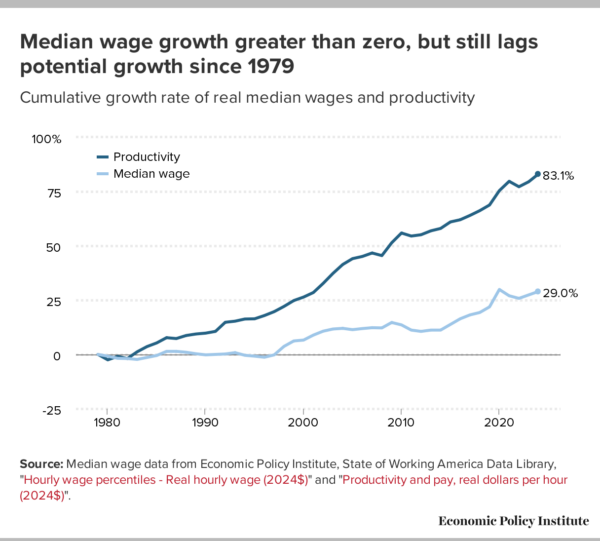
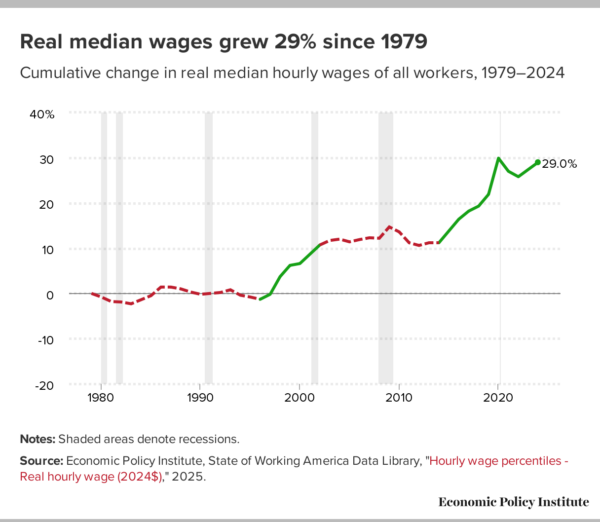
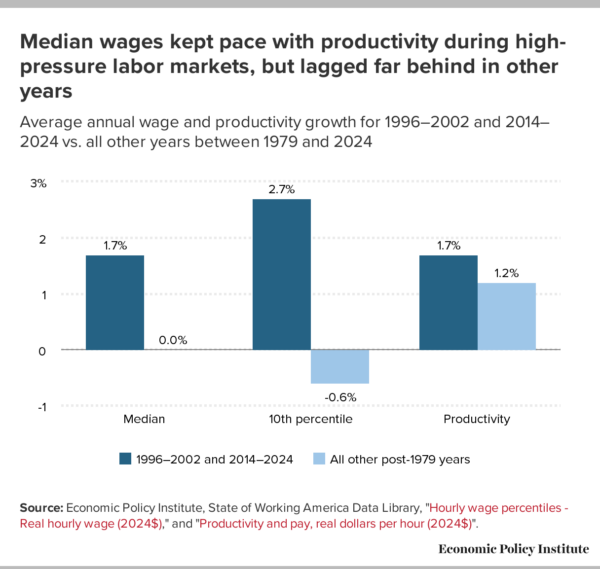













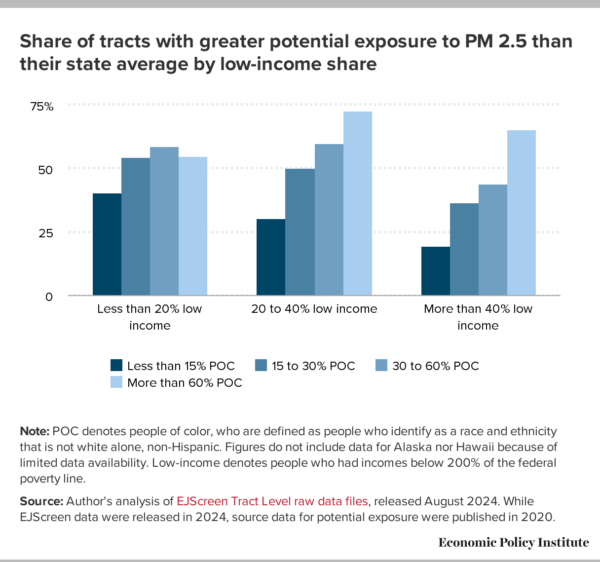
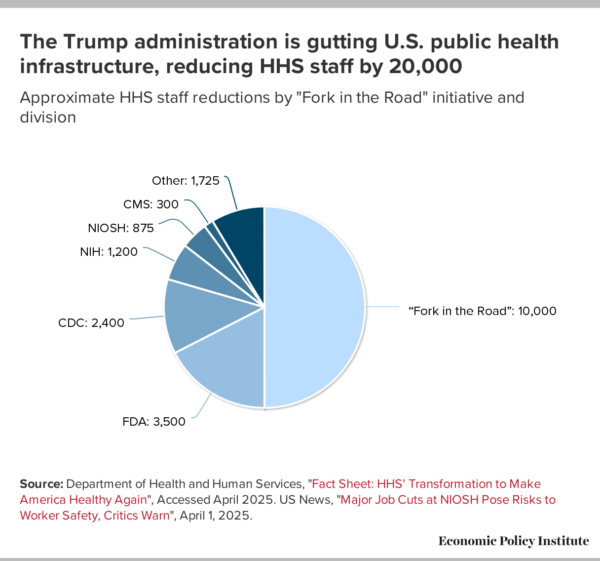
Recent comments